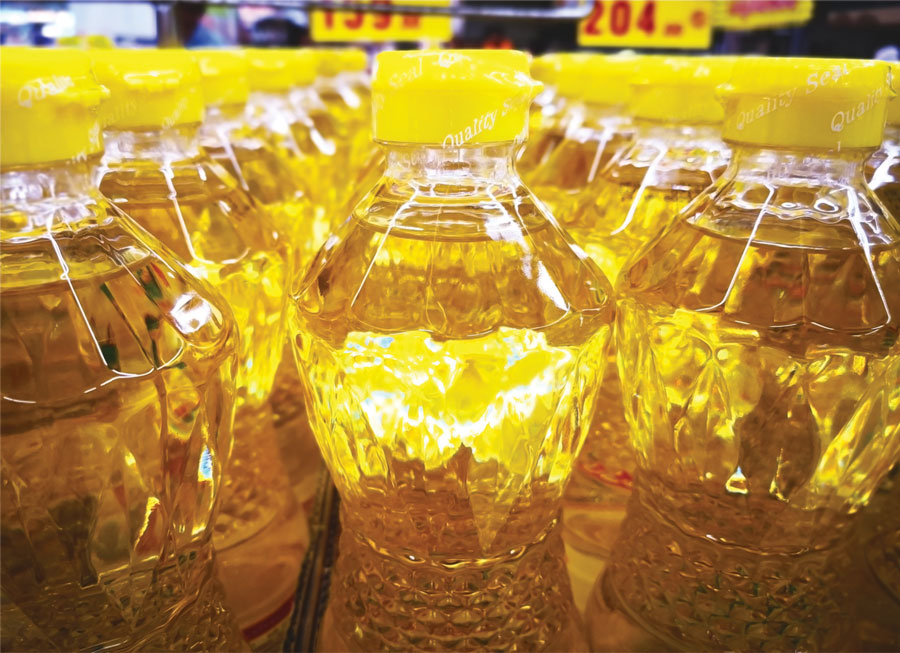


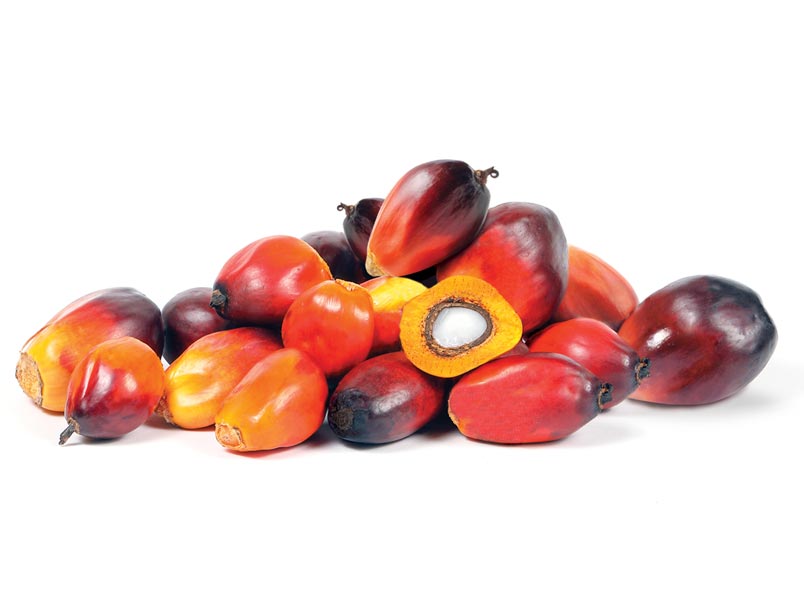
Ireland´s economy, which is export-oriented and open to foreign investors, has benefitted greatly from globalisation. An extended boom since the 1990s – marked by high growth rates, steeply increasing per capita income and sharp falls in unemployment – was followed from 2008 by a bust that lasted several years.
But Ireland is again living up to its reputation of being the ‘Celtic Tiger’. Impressive growth rates, such as 8% in 2014 and over 5% in 2017, make it the leader among EU member-states.
Ireland also remains an attractive location for foreign direct investors using the island as an export base for the rest of Europe. The main sectors are financial services, the communications industry, software and pharmaceutical products, as well as medical industries.
The US is by far the largest investor. American companies in Ireland employ around 140,000 people. American FDI amounted to US$311 billion in 2013. To put this into perspective, Germany and France together invested about US$196 billion, according to the American Chamber of Commerce Ireland.
Interestingly, soybean oil is the only vegetable oil produced in Ireland albeit on a limited scale of several thousand tonnes per year. It seems that Irish agriculture is trying to reduce its dependency on imported protein for animal feed.
Palm oil dominates the imported vegetable oils sector. The 85,000 tonnes in 2016 represented over 40% of oils and fats imports. While the level of palm oil remains relatively high, soybean and rapeseed have gained ground in the last few years (Figure 1).
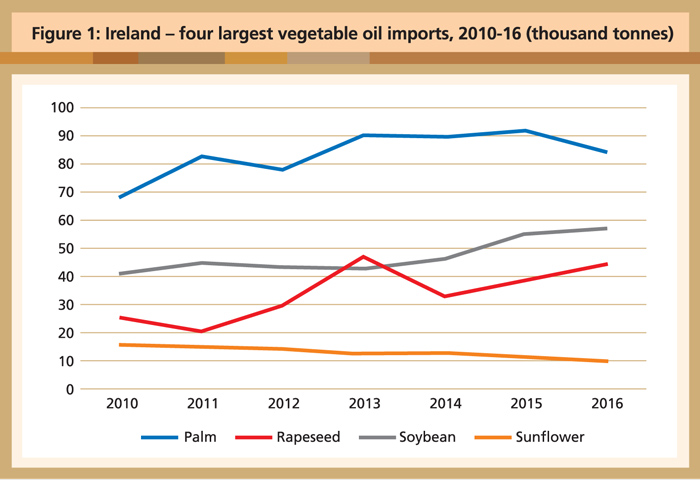
Source: Oil World Annual 2017
While Malaysia and the Netherlands together supply nearly 90% of the palm oil sold to Ireland, Malaysia has been able to widen the lead since 2014 (Figure 2).
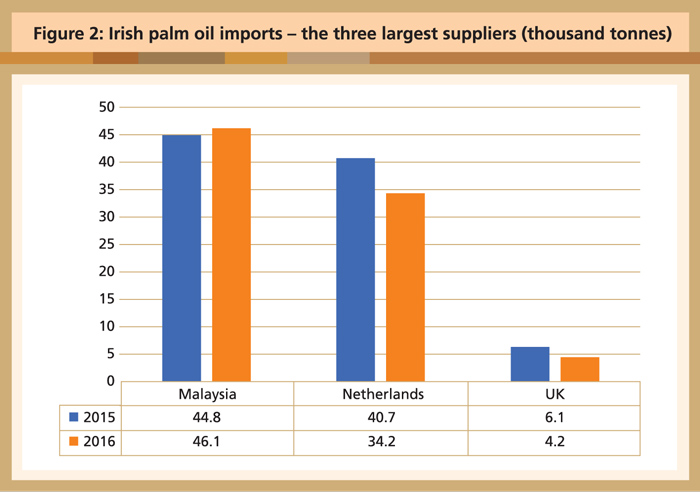
Source: Oil World Annual 2017
Experience suggests that, as societies become wealthier and more urbanised, and as general education levels rise, the taste for all things sustainable also grows.
This is the case in Ireland, which has progressed from being Europe´s poorhouse to Celtic Tiger. About one-third of the population of 4.6 million lives in the metropolitan area of Dublin, the capital.
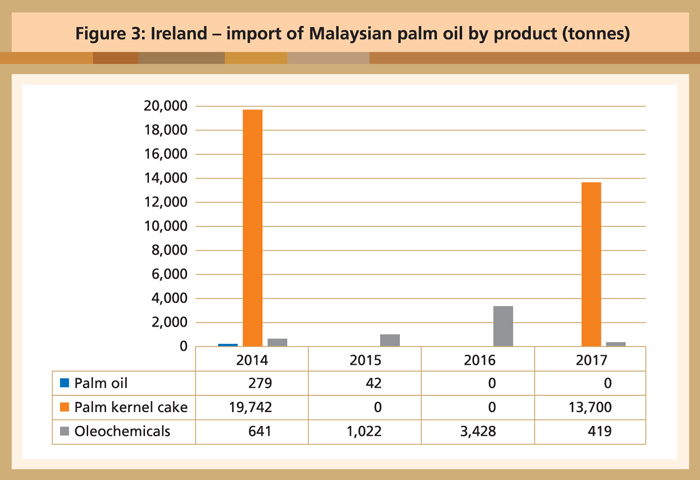
Source: MPOB
In particular, concerns over the environment and issues like global warming have become more evident. For example, the Irish subsidiary of German discount chain Aldi states on its website: ‘As of January 2016 we achieved our goal for 100% of the palm oil used in our own label food products in the UK and Ireland to be from RSPO certified, sustainable sources. This includes all palm oil, palm kernel oil and palm derivatives and fractions. Having achieved 100% sustainable palm oil in food, we aim to have 100% sustainable palm oil in non-food products by the end of 2018.’
The lesson here, as in most European countries, is that the future belongs to certified sustainably produced palm oil. Industry players should take this into account when thinking about the market potential that Ireland presents. Palm oil is already the primary vegetable oil consumed in the country, and there is potential for biofuels as well.
MPOC Brussels
